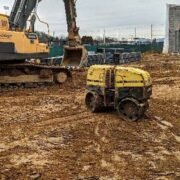If you’re interested in science, technology, engineering, or mathematics (STEM), you’ve probably had the idea to get a degree in these fields. And if that’s the case, then we have some good news. The Internet is full of resources that can help you prepare for STEM studies and careers.
From learning about computer programming to volunteering at a local science museum, there are plenty of ways to get started with your research and exploration of STEM fields. Here are some suggestions for getting started:
Find Resources Online
As per iD Tech, there will be more than 821,300 STEM jobs opening in the next 10 years.
If you are interested in STEM, you can find resources online to help you prepare for STEM studies and careers. Courses like Proprep STEM learning provides free online courses in math, science, and more. You can use their interactive curriculum to learn about the topics that interest you most or take a general course on each subject before moving on to an advanced one.
You can also download videos of lectures and take notes while watching them or use their practice exercises as part of your preparation for tests or exams at school or work.
Take a Class in High School
If you’re not sure about a career in science, technology, engineering, or math, or you’re just curious about what it’s like, take an introductory class in high school. Not only will you learn about the subject matter and get a head start on your future career, but it can also help narrow down your options if you do decide to pursue STEM fields.
If there isn’t any type of class offered at your school that fits into one of these categories but isn’t a required subject (for example, biology), ask if they can teach something related to the field they are interested in pursuing instead. This could be anything from neuroscience to chemistry and physics, focused on engineering careers.
Volunteering at Your Local Science Museum
Volunteering at a science museum is an excellent way to get hands-on, real-world experience in STEM fields. You’ll be able to learn about different jobs, gain confidence in your abilities, and try out new skills.
If you’re interested in becoming an educator or research scientist later, this can be an exciting way to prepare for the future. Science museums also host events for kids and adults alike, focusing on STEM education. You may even get the chance to help them set up.
Search Your Local Library
A local library is a great place to start when looking for books about science, math, or engineering. You can find books that are easy to read and fun to read. You can also find books about topics that you are interested in learning more about.
There may be some children’s books at your local library that have been reviewed by other people on an online book review site such as Goodreads or Amazon. These reviews are helpful because they tell you if someone else has read this book and enjoyed it before you buy the book yourself.
Look for Books That Are Written in Simple Language
You can find books on these topics that are written in simple language. Look for books for children, adults, and people with learning disabilities. You can also find books for people who are not native English speakers to help them understand the topic.
Check Out the Computational Thinking Mooc on Edx
One of the best ways to prepare yourself for a STEM career is by learning about computational thinking, which is a way of looking at problems that involve breaking them down into small parts and solving them one piece at a time.
Computational thinking has many applications in real life, from designing robots to writing computer programs.
Check Out the Science and Engineering Course on Coursera
If you’re not sure where to begin, check out the Science and Engineering course on Coursera to get an overview of STEM fields you might be interested in. As per Learnopoly, Coursera has over 7000 courses and 92 million registered learners. 81% of its learners gave the course a five-star rating. `
The course is free to audit and teaches you how to think like a scientist or engineer. It covers basic concepts in each field and shows how they interconnect.
If this sounds interesting but too much for your schedule right now, take solace in the fact that even if it’s not your cup of tea right now, it can always be revisited later once you’ve settled into your career path.
Conclusion
You’ve reached the end of the guide, and we hope you learned everything you need to know about STEM. As per Statista, 429,298 STEM bachelor’s degrees were awarded in the US in the school year 2019-20, and 142,775 STEM Master’s degrees were awarded in the same year.
That means there are numerous students who are getting STEM degrees with the aid of resources available online and offline. I hope this guide has been helpful to you in your preparation for STEM. And if it was, please share it with your friends. Good luck with your studies.


















Comments